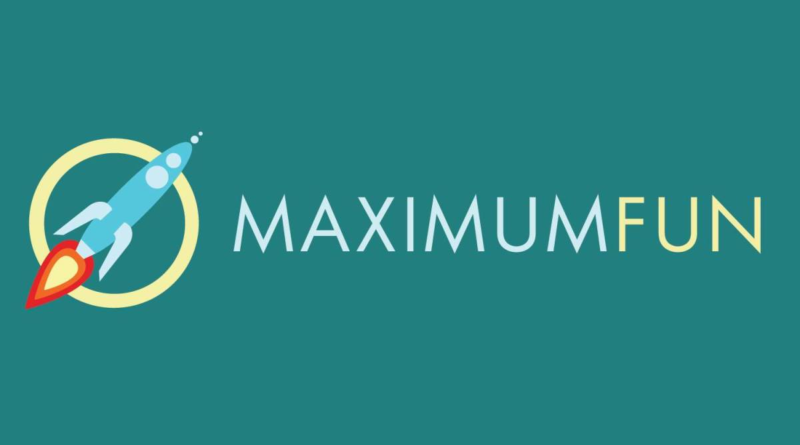Podcast network Maximum Fun is becoming a worker-owned co-op
Maximum Fun owner Jesse Thorn is selling the podcast company that he founded almost 20 years ago. Rather than surrendering the network to a big tech company or media conglomerate, he is selling it back to its workers.
Maximum Fun, best known for distributing hit shows like the McElroy family’s “My Brother, My Brother and Me,” will become one of the only worker-owned co-ops in media. That means that full-time employees can take a stake in the ownership of Maximum Fun, earn a share of profits and have greater input in overall company decision making. The podcast network follows in the footsteps of Defector Media, an employee-owned company founded by former Deadspin writers who quit en masse due to disputes with owner G/O Media.
“For the first 10 or 12 years, I was working 60 or 70 hours a week and making $16,000 a year. And since I’ve had kids, it’s still working seven jobs at once,” Thorn told TechCrunch. “When some family situations came up that were really intense, I just thought, I can’t maintain this.”
Despite Thorn’s initial struggles, Maximum Fun now distributes more than 40 podcasts, which have cultivated a dedicated fan base. Thorn said that over the years, some tech companies have expressed interest in acquiring Maximum Fun (though he wouldn’t reveal which companies). In the past, he had a few meetings about potential acquisitions, which never moved past a rudimentary stage. But when Thorn decided that he wanted to relinquish ownership, he considered these avenues once again.
“I sort of found myself coming to terms with the likelihood that if I sold Max Fun, it would mean — even if I sold it to someone who I like more than Amazon — I would still be costing people their jobs, and costing smaller shows in our network their incomes,” Thorn said. “And I didn’t want the kinds of values that we had built the company around to be abused.”
Thorn will remain at Maximum Fun as a worker-owner and continue making his own shows, like “Bullseye with Jesse Thorn” from NPR. He will also have a non-voting board seat.
“I didn’t get into this to be a capitalist,” Thorn told TechCrunch. “I wouldn’t necessarily call myself an anti-capitalist, but I have a lot of ambivalence about the accumulation of capital.”
Maximum Fun operates like a public radio station. Every year, the network hosts a fundraiser to drum up listener support, which helps keep the company afloat — other funding comes from ad sales. For now, Maximum Fun will maintain this same business model.
“One of the reasons why our funding model isn’t changing is because it’s been what’s made the company so sustainable,” said Kevin Ferguson, a senior audio producer who is assisting with the transition. “We limit the number of ads that our audience hears, and that limits the amount of revenue we get from ads, so we really do rely on folks putting in a little bit of money every month to support us.”
When listeners pledge to support the company, they list which shows they listen to, and those shows get 70% of the pledge; Maximum Fun gets the remaining 30%. Managing Director Bikram Chatterji told TechCrunch that listener support makes up about 65% of funding, while ads account for the other 35%.
But ad-driven businesses aren’t doing so hot right now, and last year, the network missed its overall fundraising goals.
Chatterji said that the structure of the deal won’t hold worker-owners responsible for the financial future of the company, but they will earn a profit share and have voting rights on big decisions; they will even have oversight over executive roles like Chatterji’s own position. The size of the profit share depends on how long an employee has worked at Maximum Fun.
“There are organizations out there whose job it is to basically help facilitate these transactions, and that the future employees don’t bear any of that risk,” Chatterji told TechCrunch. To buy out Thorn’s ownership, Maximum Fun took out a loan from a community development financial institution. Thorn said the company also worked with Project Equity, a Bay Area nonprofit that helps transition companies to employee ownership.
All full-time employees at Maximum Fun are eligible to join the co-op, which requires a buy-in fee of “three figures,” Thorn said. As of last week, 17 out of 23 full-time employees had said they plan to join the co-op (two of the 23 employees are year-long fellows, who are paid two dollars more per hour than Los Angeles minimum wage). In most cases, the hosts of Maximum Fun podcasts are not full-time employees, so they’re not eligible to join the co-op, but Thorn said they were consulted in the company’s decision. Nothing about hosts’ agreement with the network will change.
Though this is a major transition in both the company’s history and his own life, Thorn is optimistic about this new direction.
“The evidence is very clear that employee ownership makes for more successful and sustainable businesses, and that employees who own their work do better work,” Thorn said.




